How To Increase Water Hardness In Aquarium
Our final chapter in our beginner's guide to water chemistry covers GH.
GH is essentially the hardness of your water.
And today, I'm going to teach yous everything about information technology.
at a glance: MAINTAINING GH LEVELS
| | API Exam Kit
| |
| | Innovative Marine Accudrip Acclimator
| |
| | Seachem Furnish 500ml
| |
| | Seachem Equilibrium 600gram
| |
| | Weco Wonder Shell Natural Minerals
| |
| | Nature'southward Ocean No.8 Premium Atlantic Crushed Coral
| |
| | Nature'southward Ocean No.1 Aragonite Sand for Aquarium
|
What is aquarium GH?
General level of hardness, also known every bit aquarium water hardness, is referred to every bit GH for short. It's basically the mensurate of the many salts that are dissolved in your water. In particular, calcium and magnesium Ions.
Water with a low GH is said to exist softer water, and water with a high GH is considered hard.
Then, soft water aquarium has very footling or no calcium and magnesium levels. Hard water has a lot.
While GH is an important function of high-quality water chemistry, most of yous using tap water don't need to worry almost information technology.
You see, your GH entirely depends on your purified water source. Most tap h2o by and large has sufficient GH so that y'all'll never have issues with it.
There are generally two reasons you need to monitor the GH in your aquarium:
1. You have either very soft or very hard water
If your water source is very soft or very hard, keeping certain types of paradise fish that prefer to live in the heart of this range tin be difficult. You'll need to keep an eye on your GH and raise or lower information technology accordingly.
ii. Y'all want to keep a specific type of fish
On the flipside, some fish thrive in harder water such as cichlids, while others thrive in soft water similar discus. If you want to continue soft h2o fish, y'all need to monitor your GH h2o conditions.
Information technology is also worth mentioning that since saltwater tanks employ RO/DI water, they don't have to worry virtually GH because the salt mix restores these minerals.
What is the deviation between GH and KH?
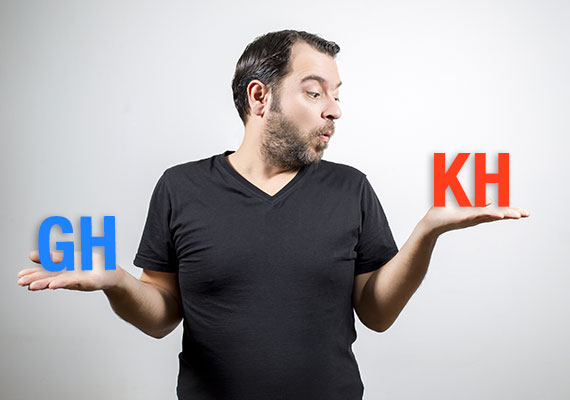
Beginners often misfile full general hardness (GH) with carbonate hardness (KH). While both take the word hardness in their name, they measure different parameters of your h2o.
General hardness (GH): The measure of magnesium and calcium dissolved in water.
Carbonate hardness (KH): The measure of carbonates and bicarbonates dissolved in water.
If yous've always heard someone say…
I have really hard water where I alive.
They are referring to GH.
KH, on the other mitt, keeps your pH levels stable.
In nature, GH and KH become hand in hand. If a waterway has a loftier GH, it likewise has a high KH.
But tap water is usually anything only natural…
Information technology's quite possible for your tap water to have a actually high GH and a very low KH. So, simply having a high GH does not automatically mean that you also have a high KH.
For more data on KH, cheque out FishLab's detailed guide.
Why is aquarium GH important to your aquarium?
The number i reason why yous should monitor the GH (full general hardness) of your aquarium comes down to 1 word…Osmoregulation.
Osmoregulation is a natural process that your fish exercise automatically. It's similar yous or me animate, meaning it just happens.
To put it super simply, osmoregulation is the process of your fish balancing the salts and h2o inside their trunk with the salts and water outside their body.[one]
If an imbalance occurs, it can stress your fish or worse. In severe cases, it tin pb to the death of your fish.
This is why a freshwater fish won't survive in common salt water and vice versa.
There is another reason why GH is important…
Electrolytes
You lot've probably seen this word in Gatorade advertisements.
Electrolytes is merely a fancy term for minerals and salts that conduct electricity when dissolved in water – minerals similar calcium and magnesium (GH!).
These electrolytes aid in muscle and bone growth, digestion, development of gills, improves resistance to diseases, and more… Pretty darn important stuff, right?
Your fish need electrolytes to remain healthy, and the but place your fish can get them is past drawing them from the water.[2]
But here's the thing…
Water with no GH has no electrolytes for your fish to use!
This can lead to some serious health issues.
Attention planted fish tank owners: Even aquatic plants demand some caste of electrolytes. For example, plants use calcium to grow.[3]
If you accept very soft water, then the GH might not be high enough to supply your plants and fish with the electrolytes they need to remain healthy!
As you lot run into, it's pretty important that your aquarium contains at least some level of GH.
Yous should also note that the GH of your aquarium tin can change over time. GH can get lower in your tank because fish and plants use upward the trace minerals.
Or, information technology could be that GH is college in your tank because calcium and magnesium are left behind when water evaporates from the tank.
What is the all-time GH for your aquarium?
The ideal GH levels entirely depend on what you stock in your tank.
Allow's look at the suggested ranges for different types of aquariums. While the measurements tin can be listed equally role per million (PPM), I prefer to apply degrees of general hardness (dGH). One dGH is nigh equivalent to 17.9 PPM.
Delight note: The following recommendations are rough guidelines only. Your specific fish, plants and invertebrates may require more precise GH levels exterior these ranges.
| Tropical Fish Tank | 4-12 dGH |
| Shrimp Tank | iv-8 dGH |
| African Cichlid Tank | 12-20 dGH |
| Discus Tank | 3-8 dGH |
| Planted Tank | three-8 dGH |
| Brackish Tank | 12-twenty dGH |
| Axolotl Tank | 7-xiv dGH |
| Pond | 4-12 dGH |
How do yous examination the GH of your aquarium?
The important matter to remember is that the GH of your aquarium is invisible. You won't be able to tell the deviation between soft water (low GH) and hard water (high GH) just by looking at it.
To determine the GH of your h2o, you lot accept to examination it. And to do that, yous'll need an aquarium test kit. This i, to exist exact…
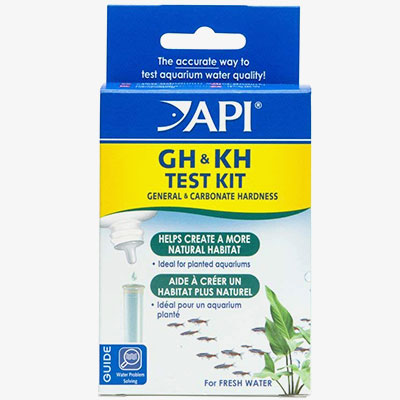
Don't worry! It's affordable and easy-to-use. But all-time of all, a single GH exam kit tin terminal for hundreds of tests. Just follow the step-by-step instructions for accurate results.
FishLab Notation: The results of the examination can be given in degrees General Hardness (dGH) or parts per million (PPM). Which you lot employ is a thing of choice. I personally use dGH and refer to it from now on.
While there are aquarium test strips bachelor that too test for GH, I don't recommend them. Based on personal experience, test strips are much less authentic than liquid test kits.
Now, yous may be wondering:
How often should I test the GH of my aquarium?
Unless yous have very hard or very soft water or desire to go on a sensitive species of fish, most of you won't need to worry about regularly testing your tank for GH.
Still, if you do, I recommend testing it once every time you perform aquarium maintenance, such as a water change.
What happens if your GH is too high?
As I covered before, all tanks need some degree of GH.
But what happens if the GH of yours is too high?
Let'due south look closer at 3 negatives brought on by high GH.
1. New fish can die
Okay, so this point is the affair of some debate. Later all, you don't have to arrive to find resources that country a high GH will not affect fish as long as they accept acclimated to the difficult water.
Allow me repeat that last point:
…every bit long as they accept acclimated to the hard water!
But what happens if you buy a new fish and your aquarium has a significantly higher GH (general hardness) than that of your local pet store?
Well, that's when things can plow nasty.
Generally, when yous buy a new fish for your tank, you bring information technology habitation, float the bag for about 20 minutes, and so add the fish to your tank, correct?
You have not given your fish a chance to adjust.
Your fish will feel what is called osmotic shock. While it can take a few days, osmotic shock can impale your new fish.
Considering osmotic shock isn't an instant killer, beginners oftentimes blame the expiry on the fish being unhealthy rather than their difficult water.
Fortunately, in that location is a uncomplicated way to get around this…
Drip acclimatization
Drip acclimatization is exactly what it sounds like. You drip water from your current fish tank into a container with the water your fish came in.
By calculation your harder (or softer) water drop by driblet, your fish will find it much easier to adapt to the modify in water hardness.
Information technology's a slow process, but it gives your fish the greatest chance of survival.
Want to try your hand at drip acclimatization? I highly recommend grabbing this tool…
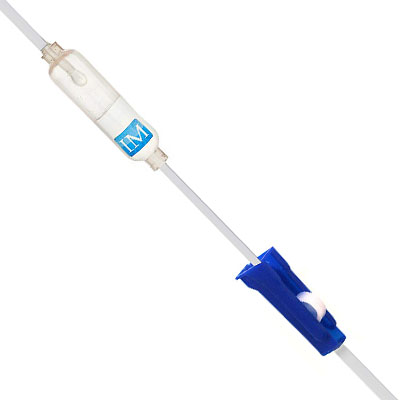
Information technology's virtually like a gravel vacuum, but instead of streaming a abiding catamenia of h2o, information technology removes it drop past driblet and really simplifies drip acclimatization.
two. Breeding
Want to try your hand at breeding? Many fish won't breed successfully if the water is too hard. Discus and Ram cichlids are two species that spring to mind.[four] [5]
The reason? In their natural habitat, these fish breed during the rainy season. As their homes flood with extra h2o, the GH drops.
The fish use this drop in GH (among other factors) to let them know that information technology's time to start getting frisky.
So if your GH is likewise loftier, so yous will have difficulty breeding these sensitive fish.
three. Live plants
Nearly plants tin tolerate a moderately high GH or general hardness.
Notwithstanding, there are sensitive soft water plants that tin can be well-nigh impossible to grow in hard water. Chain Sword or Dwarf Sagittarian are two plants that thrive in soft h2o and struggle when the GH rises.[6]
The solution is simple: Select plant species that will happily grow in the GH of your h2o!
How to enhance aquarium GH – increase hardness
Tested your aquarium water and discovered that y'all need to raise your GH?
Let's look at how you can exercise exactly that!
1. Water changes
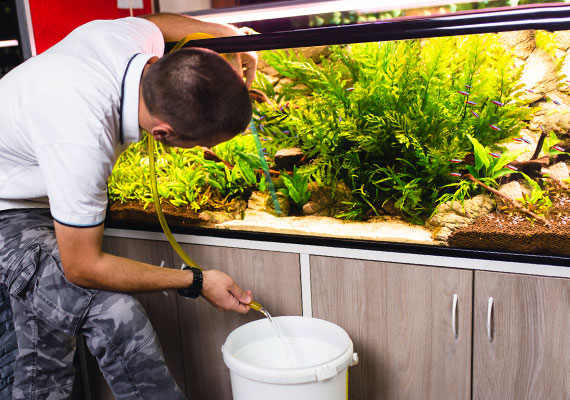
Is your tap water moderate to very hard? For most of you, that will be all that is needed to increment the hardness of your aquarium water.
Simply keeping upwardly with your h2o changes will be enough to replenish the GH that has been depleted past fish and plants in your tank.
Merely what if y'all accept very soft h2o? Or maybe, you lot only want to increase the GH higher than what your tap water currently contains?
Well, that'south where the following come up in…
2. Water remineralizer
RO/DI water is very soft water that has been stripped of all its mineral content. Information technology contains zero GH and, on its own, is unsafe for fish and plants.
Remineralizer restores the lost minerals. But it'southward not only great for RO/DI water, you can use it to heighten the GH of soft well h2o or tap water besides!
My favorite remineralizer is… Seachem Replenish.
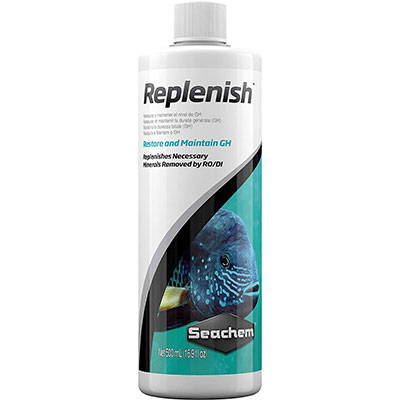
By following the included instructions, this remineralizer allows you to attain a specific GH with little effort.
Seachem Replenish contains sodium chloride, so it is non suited for planted tanks or salt-sensitive fish, such as certain breeds of catfish.[7]
Fortunately, Seachem also makes a remineralizer that is safe for plants and common salt-sensitive fish also…
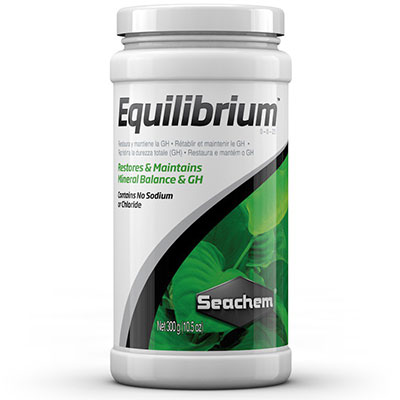
Gratis from sodium chloride, it's perfect for raising the GH in your planted tank.[eight]
Remineralizer is generally added each fourth dimension you perform a h2o change.
three. Wonder shells
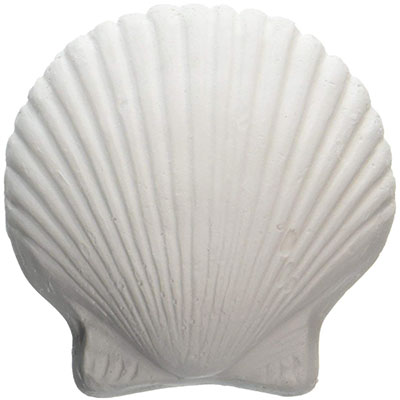
Wonder shells contain magnesium and calcium. When added to your aquarium, these shells slowly dissolve, releasing these elements into your aquarium and raising your GH.
Wonder shells also status your h2o, removing chlorine and chloramine from tap h2o and tin help reduce cloudiness as well. They are particularly popular in minor beginner aquariums.
Simply be mindful that it will take some trial and error before y'all know how many shells you demand to reach a specific GH in your tank.
four. Crushed coral
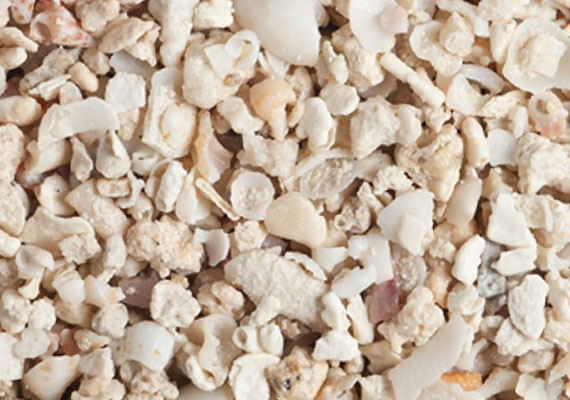
Crushed coral is exactly what it sounds like. Coral that has been harvested from expressionless reefs.
Because coral is largely calcium carbonate, it slowly releases calcium and carbonate into your water when added to your tank.
Crushed coral tin can either be mixed in with your substrate or placed in a media pocketbook and added to your aquarium filter.
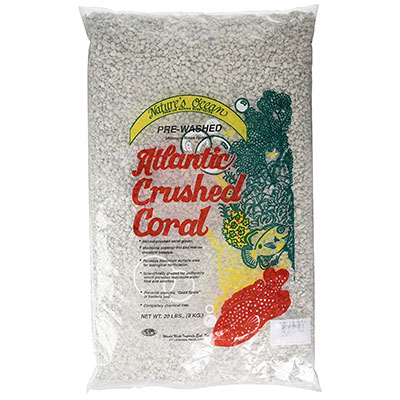
The one thing to be mindful nigh crushed coral is that it will raise non simply your GH but also your KH. The college KH means that your pH will as well be higher.
It's these verbal characteristics that make crushed coral a popular choice in cichlid tanks, which prefer hard water with a high pH.
v. Aragonite
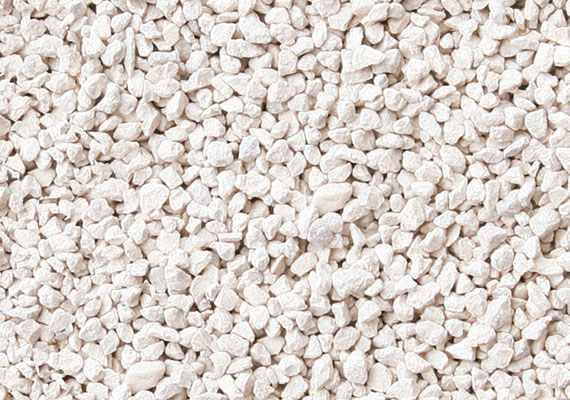
Aragonite is bachelor as rocks or sand. Like crushed coral, it is made up almost entirely of calcium carbonate. When added to your aquarium, it releases both calcium and carbonate into your water.
Aragonite is mostly used as a substrate for hardwater-loving fish like African cichlids. It's more pleasing to the eye than crushed coral. You might as well hear aragonite sand referred to as cichlid sand.
Just like crushed coral, adding aragonite to your tank volition not only increase your GH but your KH and pH besides.[9]
Some brands mix both aragonite and crushed coral together in 1 product to go far more visually appealing.
How to lower aquarium GH – decrease hardness
Okay, so decreasing the GH is slightly more than difficult than increasing it. If y'all take hard h2o, you may find it easier to keep hardwater fish than plants.
Let'southward take a closer wait at the different ways to lower the GH of your tank.
i. Opposite Osmosis/Deionized water (RO/DI)
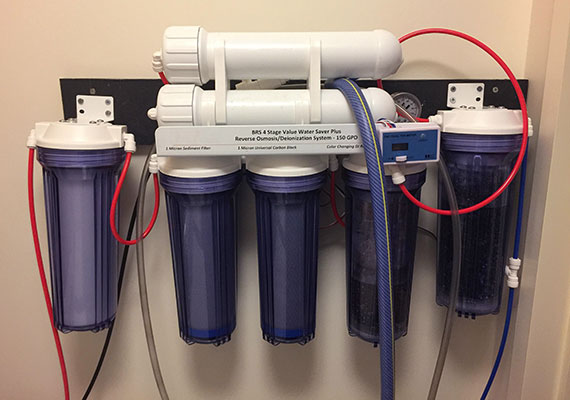
If you lot need to lower your GH every fourth dimension y'all perform a h2o change, an RO/DI system is your best bet.
To put it super simply, this device removes salts, minerals and other contaminants leaving you with 99% pure water.
Best of all, this water is soft. So soft, it has a GH of goose egg.
So with your RO/DI water on paw, you take two choices:
1. Remineralize – Start from scratch and raise the GH to your desired level using a remineralizer like Seachem Furnish.
2. Dilute – Use the RO/DI h2o to dilute your tap water, lowering the GH down to your preferred level.
While it may be expensive to fix initially, an RO/DI system saves y'all money in the long run.
The other selection is to buy bottles of…
ii. Distilled h2o
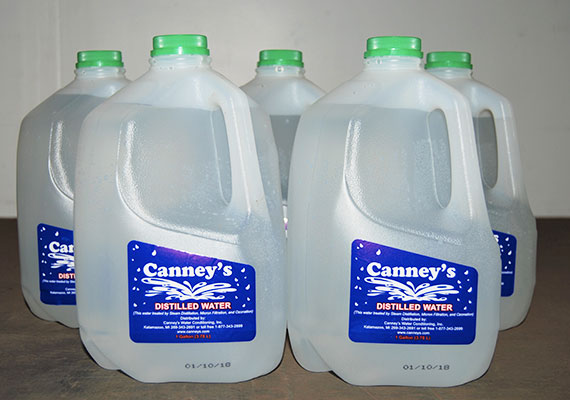
Distilled water is essentially water that has been turned into steam then collected. When water turns to steam, it leaves behind salts and minerals, resulting in pure water.
Like RO/DI water, distilled water is soft and has a GH of zero and cannot exist used on its own. Information technology must either exist remineralized or mixed with your tap h2o to increment the GH.
3. Peat moss
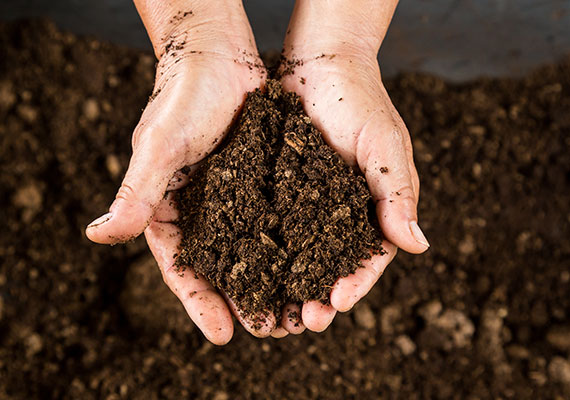
Peat is dried and chopped upwardly sphagnum moss and, when added to your tank, can be used to soften your water.[10]
Simply add peat to a mesh pocketbook and identify it within your filter. Every bit the water passes through the peat, it traps the GH minerals similar calcium and magnesium. By removing and replacing the peat, y'all remove these minerals and soften your water.
There are some downsides to using peat. Namely, it'due south non a very precise method of lowering GH, and its bear upon can exist almost unnoticeable on difficult water with a high GH.
Peat also releases tannins, which can lower your KH and pH likewise. These tannins also dye your water a yellow colour. Depending on what y'all stock, this may not exist desired.
Some people use Indian almond leaves to similar event.
Decision
For those with soft or hard water, understanding and adjusting GH is an of import part of fishkeeping.
While many beginners get past without testing their GH at all, there is a good reason why you should – the health of your fish are at pale!
Besides, as you meet from this article, testing, raising and lowering the GH of your tank isn't that difficult anyway.
Practice you test your tank'southward GH levels? Let me know in the comments below!
Source: https://fishlab.com/aquarium-gh/







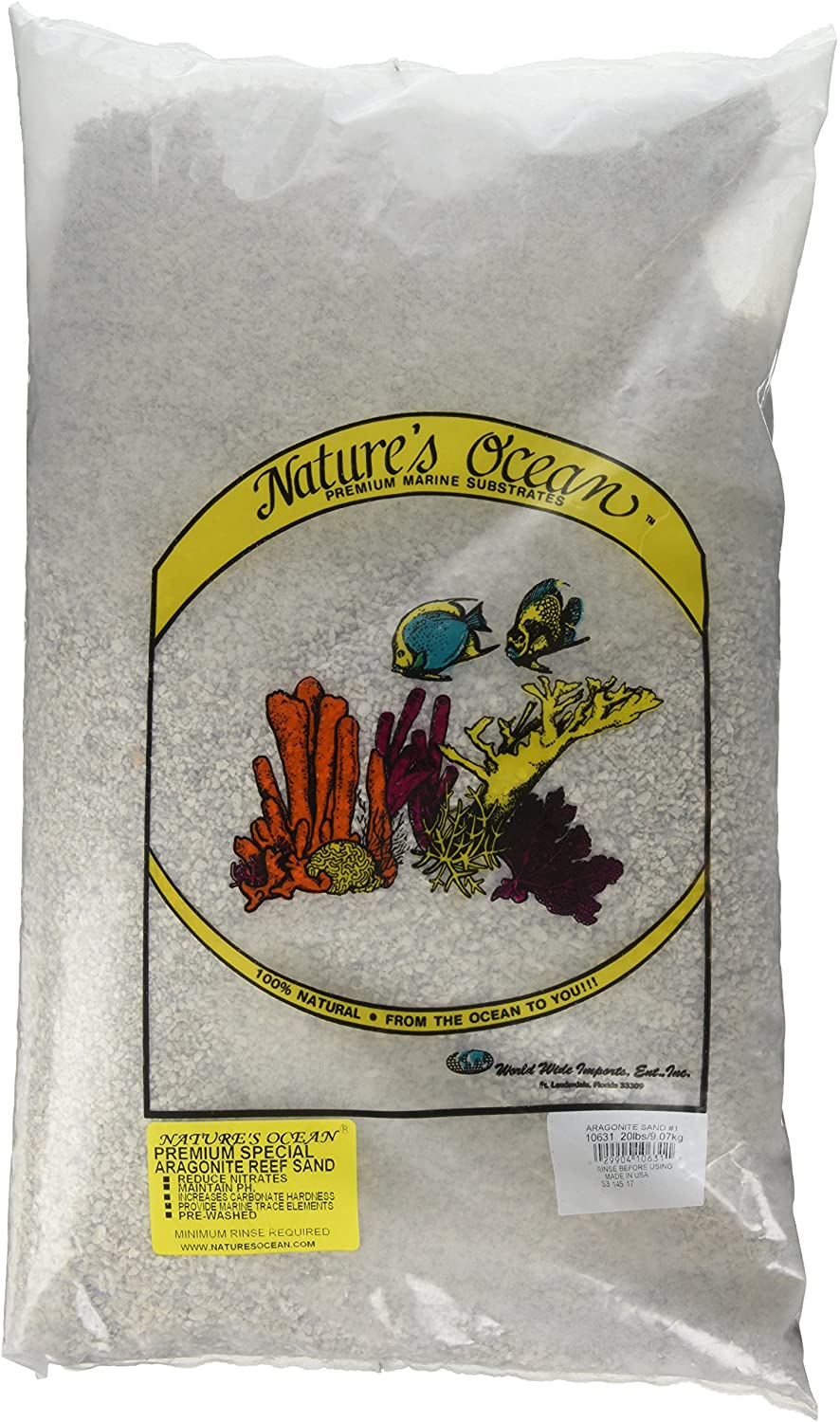
0 Response to "How To Increase Water Hardness In Aquarium"
Post a Comment